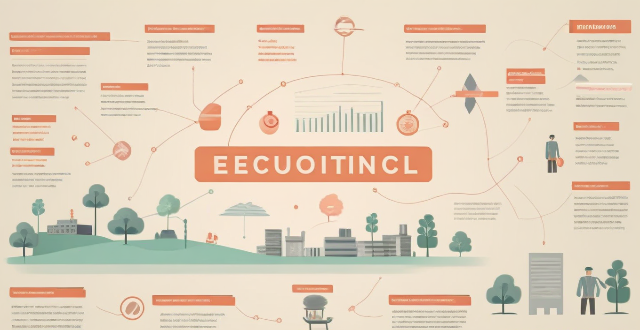Trade Cooperation

Can you provide examples of successful international cooperation initiatives ?
Successful International Cooperation Initiatives International cooperation is a vital aspect of global progress, enabling countries to work together towards common goals. Here are some examples of successful international cooperation initiatives: 1\. The United Nations Framework Convention on Climate Change (UNFCCC) aims to stabilize greenhouse gas concentrations in the atmosphere at a level that prevents dangerous human interference with the climate system. It has been ratified by 197 parties, making it one of the most widely accepted international agreements. 2\. The World Health Organization (WHO) is the directing and coordinating authority on health within the United Nations system. It provides leadership, research, norms and standards, and technical support to countries worldwide. 3\. The International Space Station (ISS) is a joint project among five space agencies: NASA (United States), Roscosmos (Russia), JAXA (Japan), ESA (European Space Agency), and CSA (Canadian Space Agency). It serves as a microgravity and space environment research laboratory. 4\. The Convention on International Trade in Endangered Species (CITES) is an international agreement between governments aimed at ensuring that international trade in wild animals and plants does not threaten their survival. It regulates or bans trade in species listed in its appendices.

How can we improve international cooperation among nations ?
The text outlines ways to improve international cooperation among nations, including enhancing diplomatic relations through regular dialogues and cultural exchange programs; collaborating on global issues such as climate change, poverty, hunger, peace, and security; sharing knowledge and technology by research collaboration and protecting intellectual property rights; promoting trade and economic cooperation by reducing barriers, investing in infrastructure, and maintaining fair labor standards; and building capacity for global governance by strengthening institutions and supporting developing countries.

How can developing countries benefit from international cooperation ?
Developing countries can benefit from international cooperation in multiple ways, including access to technology and innovation, economic growth and trade opportunities, improved healthcare and education, environmental sustainability, and political stability and peace. Technology transfer, research collaborations, capacity building, trade agreements, foreign direct investment, infrastructure development, medical aid, educational exchange programs, renewable energy projects, conservation efforts, clean technology transfer, conflict resolution, democratic institution building, and legal and judicial reform are some of the key areas where developing countries can gain from working with their international counterparts.

How do ecological taxes compare to other environmental policies, such as cap-and-trade systems ?
The text discusses the comparison of two environmental policies: ecological taxes and cap-and-trade systems. It explains what these policies are, their advantages, disadvantages, and concludes that the choice between them depends on political feasibility, administrative capacity, and public acceptance.

How has technology impacted international cooperation in recent years ?
The text discusses the impact of technology on international cooperation in various sectors such as communication, collaboration tools, access to information, globalization of trade and commerce, and environmental sustainability. Technology has improved communication through instant messaging, social media, and email, enhanced collaboration tools like project management software and video conferencing, increased access to information with open source data and online news sources, globalized trade and commerce through e-commerce platforms and digital payment systems, and promoted environmental sustainability with climate modeling and renewable energy technologies. Overall, technology has had a significant positive impact on international cooperation.

How does a carbon tax compare to other climate policies, such as cap-and-trade ?
**Comparison between Carbon Tax and Cap-and-Trade Climate Policies:** **Effectiveness:** - **Carbon Tax**: Depends on tax rate, revenue recycling, and international cooperation. Higher rates may reduce emissions but impact the economy negatively. - **Cap-and-Trade**: Depends on the stringency of the cap, market mechanisms, and offsetting mechanisms. A strict cap can lead to significant emissions reductions. **Economic Implications:** - **Carbon Tax**: Incentivizes innovation, impacts consumers (especially low-income households), and can stimulate economic growth through green technologies. - **Cap-and-Trade**: Introduces cost uncertainty, risks market manipulation, and can create jobs in new technologies and industries related to emissions reductions. **Implementation Challenges:** - **Carbon Tax**: Faces political opposition, equity concerns, and requires international coordination for maximum effectiveness. - **Cap-and-Trade**: Requires complex setup and management, strict enforcement, and may face public opposition if perceived as legitimizing pollution. **Conclusion:** Both policies have pros and cons in addressing climate change. The choice often depends on political feasibility, economic considerations, and public acceptance. What's crucial is taking effective action to reduce greenhouse gas emissions.

How can international cooperation help address the challenges of climate change and energy security ?
The text discusses the importance of international cooperation in addressing climate change and energy security challenges. It highlights the benefits of sharing knowledge, joint research and development, implementing global agreements, and access to financing and investment. The text also suggests strategies for promoting clean energy technologies, strengthening policy frameworks, enhancing capacity building, and facilitating trade and investment. Overall, the text emphasizes that international cooperation is essential for creating a sustainable future.

What is the role of international cooperation in achieving the Sustainable Development Goals ?
The text discusses the crucial role of international cooperation in achieving the Sustainable Development Goals (SDGs), which aim to address global challenges such as poverty, inequality, climate change, and environmental degradation. The SDGs cannot be achieved by individual countries alone but require collective action and collaboration at the global level. Key points include the need for global solutions to interconnected issues like climate change; sharing knowledge and best practices between countries; mobilizing financial resources and expertise; promoting policy coherence across sectors; and strengthening multilateral institutions like the United Nations. Examples of international cooperation in achieving the SDGs include climate change agreements like the Paris Agreement, global health initiatives against diseases like HIV/AIDS, tuberculosis, and malaria, and trade agreements that can promote sustainable development if designed correctly. Overall, international cooperation is an integral part of achieving the Sustainable Development Goals.

How do climate change negotiations affect global trade and economic systems ?
Climate change negotiations play a crucial role in shaping global trade and economic systems. These negotiations aim to find solutions to the challenges posed by climate change, such as reducing greenhouse gas emissions, promoting renewable energy sources, and protecting biodiversity. The outcomes of these negotiations have far-reaching implications for international trade, investment, and economic development. In this article, we will explore how climate change negotiations affect global trade and economic systems. One of the key impacts of climate change negotiations on international trade is the imposition of tariffs and subsidies on goods and services that contribute to climate change. For example, countries may impose higher tariffs on imported goods that are produced using high levels of carbon emissions or other environmentally harmful practices. Similarly, governments may provide subsidies to domestic industries that adopt sustainable practices or invest in renewable energy technologies. These measures can create trade barriers and distort market competition, affecting global trade patterns. Another way in which climate change negotiations can influence international trade is through the implementation of carbon pricing mechanisms, such as carbon taxes or cap-and-trade systems. These mechanisms aim to internalize the external costs of carbon emissions by making polluters pay for their emissions. As a result, companies that rely heavily on fossil fuels or produce high levels of emissions may face increased costs, making their products less competitive in global markets. On the other hand, companies that invest in low-carbon technologies or adopt sustainable practices may gain a competitive advantage. Climate change negotiations often lead to the adoption of stricter environmental standards and regulations at both national and international levels. These standards can affect international trade by creating compliance costs for exporters and importers. For instance, companies that export goods to countries with stringent environmental regulations may need to invest in cleaner production processes or face penalties for non-compliance. Similarly, importers may prefer to source goods from suppliers that meet certain environmental standards, affecting trade flows and market access. Climate change negotiations also have significant implications for investment and economic development. As countries commit to achieving ambitious climate targets, there is an increasing demand for green finance and investment in sustainable projects. This can create new opportunities for investors and businesses that focus on renewable energy, energy efficiency, and other low-carbon sectors. However, it can also lead to capital flight from traditional fossil fuel industries, affecting economies that rely heavily on these sectors. Climate change negotiations often include provisions for technology transfer and innovation cooperation between developed and developing countries. This can help bridge the gap between countries with different levels of technological capabilities and promote sustainable development worldwide. By facilitating the transfer of clean energy technologies and supporting research and development efforts, climate change negotiations can foster economic growth and job creation in emerging markets. Finally, climate change negotiations address the urgent need for adaptation financing and support for vulnerable communities affected by climate change. This includes funding for infrastructure improvements, disaster risk reduction, and other measures that help countries adapt to changing climate conditions. While these efforts are essential for protecting human lives and livelihoods, they also represent significant economic opportunities for businesses involved in climate resilience and adaptation services. In conclusion, climate change negotiations have far-reaching implications for global trade and economic systems. By imposing tariffs and subsidies, implementing carbon pricing mechanisms, setting environmental standards, promoting green finance and investment, facilitating technology transfer and innovation, and providing adaptation financing and support, these negotiations shape the future direction of international trade and economic development. As we continue to grapple with the challenges posed by climate change, it is crucial for policymakers, businesses, and civil society to work together to ensure that our responses to this global challenge are aligned with our collective goals for sustainable prosperity.

Can I trade in my old iPhone for a new one ?
This article discusses various options for trading in an old iPhone for a new one, including Apple's trade-in program, carrier trade-in programs, and third-party trade-in websites. It highlights the benefits and considerations of each option and provides tips on how to get the most value for your old device.

How have recent trade tensions impacted international finance ?
Recent trade tensions have had a significant impact on international finance, increasing uncertainty, contributing to volatility in financial markets, and leading to changes in investment patterns. Companies may hesitate to make long-term commitments or expand into new markets due to the uncertainty created by trade tensions. Additionally, sudden announcements of new tariffs or trade restrictions can cause stock prices to drop rapidly, while news of a potential resolution can cause them to rise quickly. Changes in investment patterns may also occur as companies invest more heavily in countries where they are less likely to face trade barriers, and investors shift their portfolios away from industries that are likely to be impacted by trade tensions.

How do international trade agreements influence environmental policies and sustainability efforts ?
International trade agreements significantly influence environmental policies and sustainability efforts through harmonization of standards, potential for environmental dumping, promotion of green trade practices, and challenges in balancing trade liberalization with environmental protection. These agreements can either elevate global environmental standards or lead to a race to the bottom in regulatory protections. Policymakers must navigate the complexities of these agreements to ensure they support sustainable development goals without undermining environmental commitments.

What is the latest update on the NBA trade deadline ?
The NBA trade deadline has passed, resulting in severalThe NBA trade deadline has passed, resulting in several impact the league's play resulting in several notable trades that could impact the league's playoff race and future team dynamics. Key trades include the Boston Celtics acquiring Evan Fournier, the San Antonio Spurs sending LaMarcus Aldridge to the Brooklyn Nets, the Golden State Warriors acquiring Andrew Wiggins and D'Angelo Russell, and the Miami Heat acquiring Andre Iguodala. These moves have implications for both the teams involved and the league as a whole, with potential shifts in power and long-term effects on player development and team rebuilding efforts. Fan reactions to these trades have been mixed, with excitement and disappointment among different fan bases.

How can climate cooperation contribute to sustainable development goals ?
Climate cooperation plays a crucial role in achieving the United Nations' Sustainable Development Goals (SDGs), which aim to ensure that all people have access to the resources they need to live healthy, productive, and sustainable lives. By working together on climate action, nations can make significant progress towards several SDGs, including those related to poverty, hunger, health, education, gender equality, clean water and sanitation, affordable and clean energy, economic growth, and partnerships for the goals. Climate cooperation helps reduce the impacts of extreme weather events, natural disasters, and climate change on vulnerable communities, thereby contributing to poverty eradication efforts. It supports sustainable agricultural practices and promotes resilient food systems, ensuring food security and nutrition for all. Climate action helps reduce air pollution and improve public health outcomes, contributing to better respiratory health and overall well-being. Engaging women and girls in climate actions promotes gender equality by providing opportunities for leadership and participation in decision-making processes. Climate cooperation helps protect water resources from climate-related hazards, ensuring access to clean water and sanitation for all. Collaborative efforts in renewable energy research, development, and deployment contribute to universal access to affordable, reliable, and modern energy services. Climate cooperation creates green jobs and promotes sustainable economic growth, particularly in industries such as renewable energy and sustainable agriculture. Partnerships formed through climate cooperation drive innovation in sustainable technologies and infrastructure, fostering industrial development while minimizing environmental impacts. By addressing climate change, which disproportionately affects marginalized communities, climate cooperation helps reduce social and economic inequalities both within and among countries. Climate actions support urban planning and management that enhances inclusivity, resilience, and environmental sustainability in cities and human settlements. Climate cooperation encourages responsible consumption patterns and sustainable production methods, reducing waste and environmental degradation. This goal is directly linked to climate cooperation as it involves taking urgent action to combat climate change and its impacts. Through ocean conservation and sustainable fishing practices, climate cooperation helps protect marine ecosystems and biodiversity. By promoting sustainable land use and forest management, climate cooperation contributes to the conservation of terrestrial ecosystems and biodiversity. Climate cooperation builds peaceful societies and effective governance structures capable of managing environmental challenges and conflicts arising from resource scarcity. Climate cooperation itself is a form of international partnership that leverages collective action to achieve the SDGs more effectively. In conclusion, climate cooperation is not only essential for mitigating the effects of climate change but also for advancing the broader agenda of sustainable development. By integrating climate actions into national policies and international collaborations, we can work towards a future where environmental protection, social equity, and economic prosperity are mutually reinforcing goals.

How does climate cooperation impact global economic growth ?
Climate cooperation has a positive impact on global economic growth by fostering new industries, promoting international trade and investment, stimulating innovation and research, enhancing resilience against climate impacts, and encouraging policy coherence and stability.

Can international cooperation help mitigate climate-related conflicts ?
The text discusses how climate change can exacerbate conflicts and the role of international cooperation in mitigating these impacts. It outlines various challenges posed by climate change, such as water scarcity, food insecurity, natural disasters, and economic instability, and how they can lead to conflicts. The text then explores the potential roles of international cooperation, including diplomacy, technology transfer, financial support, education, and capacity building. It also highlights challenges to achieving effective international cooperation, such as political will, economic disparities, and cultural differences. Finally, the text concludes that international cooperation is essential in addressing climate-related conflicts and that collaborative efforts can lead to a more resilient and equitable world.

How does space exploration impact global cooperation and diplomacy ?
Space exploration has been a significant driver of global cooperation and diplomacy since the dawn of the space age. The pursuit of understanding our universe and the quest to explore beyond Earth's boundaries have fostered international collaboration, technological advancements, and diplomatic engagements that transcend traditional geopolitical tensions. In this discussion, we will delve into the various ways space exploration influences global cooperation and diplomacy.

How can international trade contribute to economic recovery ?
International trade can contribute to economic recovery by providing increased market access, access to cheaper imports, stimulating innovation and competition, and enhancing global integration.

How can international cooperation aid virus origin tracing efforts ?
The text discusses the importance of international cooperation in virus origin tracing efforts. It outlines various ways in which collaboration can aid this process, including sharing information and data through global databases and real-time reporting systems; pooling resources and expertise by establishing centralized laboratories and training programs; coordinating responses and policy making through global health organizations and international agreements; and building public trust through transparent communication and community engagement. The text emphasizes that successful virus origin tracing requires a multidisciplinary approach and the involvement of experts from different fields. It highlights the need for transparency, openness, and ethical considerations in research activities to ensure cultural sensitivity and community benefits. Overall, the text underscores the significance of international cooperation in unraveling the mysteries of virus origins and preventing future pandemics.

What is the relationship between international trade and climate agreements ?
International trade and climate agreements are interconnected phenomena that impact the global economy and environment. The relationship is complex, involving governments, international organizations, businesses, and civil society. International trade drives economic growth but also leads to increased greenhouse gas emissions. Carbon leakage occurs when industries relocate to countries with weaker environmental regulations. Global value chains contribute to emissions through transportation and production processes. Climate agreements aim to reduce emissions and promote sustainable development by setting targets for countries to achieve through various measures. They also address carbon leakage by including provisions for cooperation and coordination among countries. The relationship between international trade and climate agreements has important implications for sustainable development, including ensuring equitable economic growth, promoting fair competition, supporting innovation in clean technologies, and encouraging collaboration among countries.

How do sports events promote interfaith understanding and cooperation ?
Sporting events serve as a platform for promoting interfaith understanding and cooperation by breaking down barriers, encouraging dialogue, building partnerships, and promoting peace. Through shared passion for sports, principles of sportsmanship, mixed teams, celebration of diversity, joint community projects, interfaith leagues, peace through play initiatives, and role models, sports events can contribute to a more harmonious society where interfaith cooperation is the norm.

In what areas do we see the most effective international cooperation ?
The text discusses the importance and effectiveness of international cooperation in various areas, including environmental protection, health and disease control, economic development, peace and security, education, and cultural exchange. It highlights specific initiatives and agreements that have made significant progress toward common goals, such as the Paris Agreement on climate change, the World Health Organization's response to pandemics, regional trade blocs like the EU, UN Peacekeeping operations, and UNESCO's work in cultural heritage preservation. The summary emphasizes that collaboration between nations can lead to substantial achievements and improvements that benefit all of humanity.

What role does international cooperation play in enhancing global health security ?
In the realm of global health security, international cooperation plays a pivotal role. This collaboration among nations and organizations is crucial for addressing health challenges that transcend borders. Here's how international cooperation enhances global health security: ## Surveillance and Early Warning Systems - **Global Surveillance Networks**: By sharing information on disease patterns and potential threats, countries can work together to detect and respond to emerging health risks more effectively. - **Joint Research Efforts**: Collaborative research initiatives help to identify new pathogens and develop diagnostic tools, treatments, and vaccines. ## Strengthening Health Systems - **Capacity Building**: Weaker health systems can be supported through knowledge transfer, training programs, and infrastructure development. - **Resource Allocation**: International aid and funding can target areas most in need, improving healthcare access and quality. ## Coordinated Response to Health Crises - **Disaster Relief**: In times of crisis, such as natural disasters or large-scale outbreaks, international teams can provide urgently needed medical assistance. - **Policy Harmonization**: Aligning policies and procedures across countries ensures a cohesive approach to managing public health emergencies. ## Research and Innovation - **Technology Transfer**: The exchange of innovative medical technologies and practices can lead to better prevention and treatment options globally. - **Collaborative Trials**: Multi-country clinical trials accelerate the evaluation and adoption of new interventions. ## Education and Training - **Skill Development**: International educational programs prepare healthcare workers with the latest knowledge and skills. - **Public Awareness Campaigns**: Joint efforts in public health education can improve global health literacy and promote preventive measures. ## Norms and Standards - **Harmonization of Regulations**: Uniform standards for drugs, vaccines, and medical devices ensure quality and safety worldwide. - **Ethical Guidelines**: International ethical standards protect research participants and ensure the integrity of scientific endeavors. ## Financial Support - **Investment in Health**: International financing mechanisms provide critical funding for health programs. - **Economic Stabilization**: Financial support during health crises can prevent economic collapse in affected regions. ## Information Sharing - **Transparency**: Open communication about health issues encourages trust and cooperation among nations. - **Best Practices**: Sharing successful strategies helps all countries learn from each other's accomplishments and mistakes.

What is the role of international cooperation in shaping renewable energy policies ?
The text discusses the importance of international cooperation in developing renewable energy policies worldwide. It highlights three main benefits: sharing knowledge and best practices, accessing financing and investment opportunities, and addressing global challenges such as climate change, air pollution, and energy security. Examples are provided for each benefit, including technical workshops, research collaborations, policy forums, multilateral development bank loans, green bonds, private sector partnerships, climate change agreements, joint research efforts, and energy security initiatives. The conclusion emphasizes that international cooperation is crucial for accelerating the transition to a more sustainable and equitable energy system.

What role do international sports organizations play in fostering global cooperation ?
International sports organizations are crucial for global cooperation, promoting peace, cultural exchange, economic development, health, gender equality, environmental sustainability, and humanitarian aid.

How does cultural diversity affect international cooperation ?
Cultural diversity significantly impacts international cooperation by influencing communication, ethical perspectives, decision-making approaches, business practices, legal and governmental systems, and social norms. Understanding these differences is crucial for fostering successful global partnerships.

Can national governments alone tackle the issue of climate change, or is international cooperation necessary for effective global climate governance ?
Climate change is a complex issue that requires global cooperation to effectively tackle. While national governments can implement policies and invest in research within their borders, the interconnectedness of climate change factors necessitates international collaboration. Global agreements, technology transfer, and financial support are crucial components of this cooperation. Ultimately, a combination of national efforts and international partnerships is needed for effective climate governance.

What role does the United Nations play in promoting international cooperation ?
The United Nations (UN) is a key player in promoting international cooperation through various means, including facilitating diplomatic relations, coordinating global efforts on issues such as climate change and poverty reduction, providing humanitarian aid, promoting economic development, advocating for human rights, and encouraging cultural exchange. These efforts help to resolve conflicts, promote peace, and foster mutual respect between nations.

How does sports diplomacy contribute to international relations ?
Sports diplomacy is a form of soft power that uses sports events and activities to foster relationships between nations. It contributes to international relations by enhancing mutual understanding, promoting economic cooperation, and promoting peace and security. Sports diplomacy promotes cultural exchange and builds trust between nations. It also attracts investment, creates job opportunities, reduces tensions, and enhances security cooperation. Overall, sports diplomacy plays a crucial role in building stronger relationships between nations.

How does Cross-Border Payment impact global trade ?
Cross-border payment plays a crucial role in the global trade ecosystem by enabling businesses to buy and sell goods and services internationally. It reduces transaction costs, enhances transparency and efficiency, and promotes economic growth. However, challenges related to regulatory compliance, currency fluctuations, and technological barriers need to be addressed.